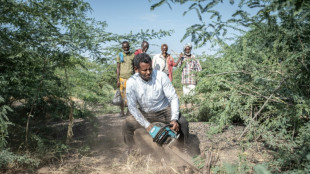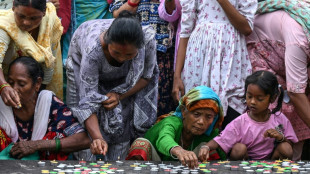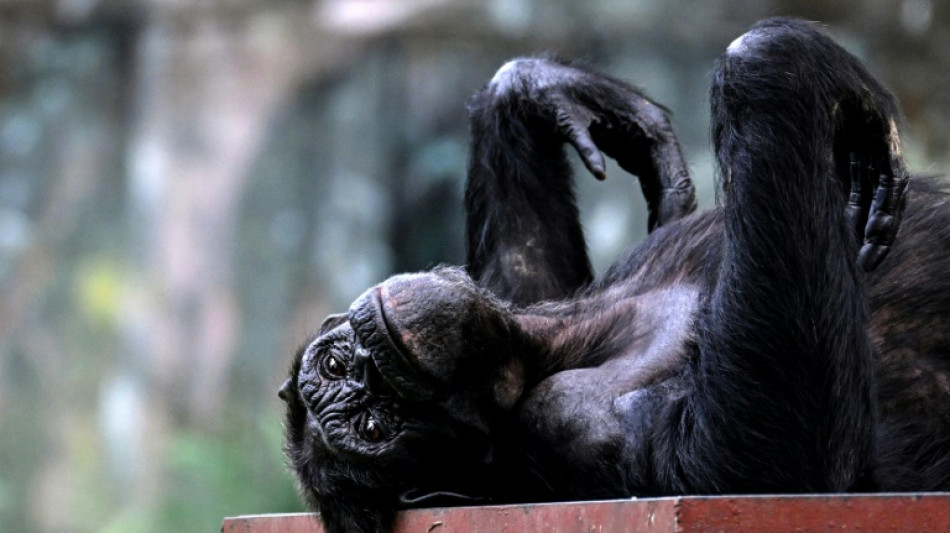
-
 France marks decade since harrowing Paris attacks
France marks decade since harrowing Paris attacks
-
Skubal, Skenes win MLB Cy Young Awards for top pitchers

-
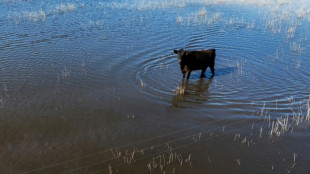 Record rains turn Argentina's farm-filled Pampas plains to wetlands
Record rains turn Argentina's farm-filled Pampas plains to wetlands
-
Solar storm brings new chance of vivid auroras, signal disruptions
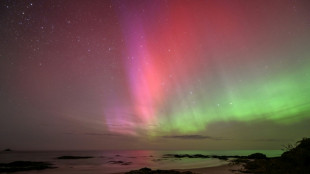
-
 Gauff and Fritz back for United Cup against Swiatek's Poland
Gauff and Fritz back for United Cup against Swiatek's Poland
-
World's fossil fuel emissions to hit new record in 2025: study

-
 US jury: Boeing owes $28 mn to family of Ethiopian Airlines crash victim
US jury: Boeing owes $28 mn to family of Ethiopian Airlines crash victim
-
G7 calls for urgent Ukraine ceasefire, de-escalation in Sudan
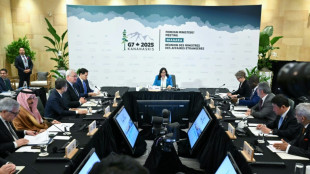
-
 Bayern stun Arsenal, Man Utd sink PSG in Women's Champions League
Bayern stun Arsenal, Man Utd sink PSG in Women's Champions League
-
New Epstein emails claim Trump 'knew about the girls'

-
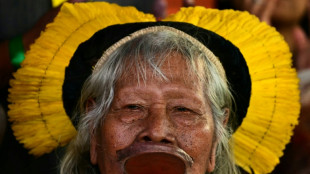 Brazil tribal chief ready to give Lula a 'talking-to'
Brazil tribal chief ready to give Lula a 'talking-to'
-
Clippers' Beal to have season-ending surgery - report

-
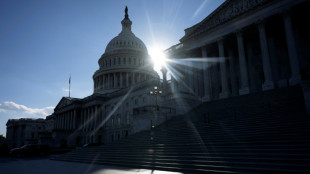 Dow ends at record on hopes US government will reopen
Dow ends at record on hopes US government will reopen
-
Portugal's Ronaldo hoping Ireland fans boo him

-
 England set for Etihad start to Euro 2028 tournament campaign
England set for Etihad start to Euro 2028 tournament campaign
-
Sinner cruises past Zverev and into last four of ATP Finals

-
 US presses final penny after more than 230 years
US presses final penny after more than 230 years
-
Baxter says England must be 'selfless' to see off All Blacks

-
 Pardoned French-Algerian writer Sansal arrives in Germany
Pardoned French-Algerian writer Sansal arrives in Germany
-
Bayern battle back to shock Arsenal in Women's Champions League

-
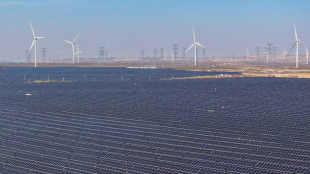 China hopes US will 'some day' return to climate fold, official tells AFP
China hopes US will 'some day' return to climate fold, official tells AFP
-
Trump 'knew about the girls,' new Epstein emails claim

-
 Scotland 'optimistic' Russell will be fit to face Argentina
Scotland 'optimistic' Russell will be fit to face Argentina
-
Big platforms chart gradual path to self-driving at Web Summit
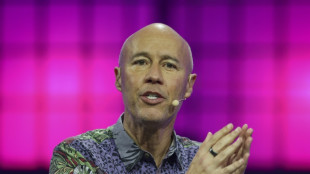
-
 Jane Goodall honored in Washington by conservationists including DiCaprio
Jane Goodall honored in Washington by conservationists including DiCaprio
-
Tuberculosis killed 1.23 million last year: WHO
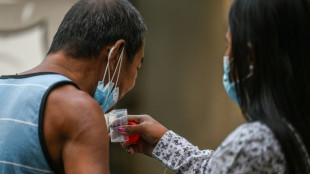
-
 New Zealand coach Robertson says Twickenham visit is 'why I'm doing the job'
New Zealand coach Robertson says Twickenham visit is 'why I'm doing the job'
-
Hopes of US shutdown deal fail to sustain market rally
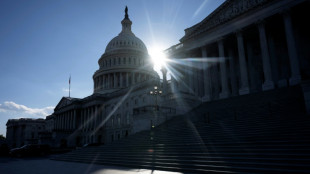
-
 US military personnel do not risk prosecution for drug strikes: Justice Dept
US military personnel do not risk prosecution for drug strikes: Justice Dept
-
Jailed writer Sansal on way to Germany after Algeria pardon

-
 Ukraine ministers resign over major corruption scandals
Ukraine ministers resign over major corruption scandals
-
Record-breaking US shutdown to end as political fallout begins

-
 Wallets, not warming, make voters care about climate: California governor
Wallets, not warming, make voters care about climate: California governor
-
Astronomers spot storm on another star for first time
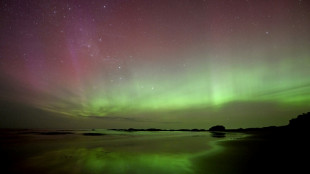
-
 G7 foreign ministers seek to boost Ukraine war effort
G7 foreign ministers seek to boost Ukraine war effort
-
Released Epstein emails allege Trump 'knew about the girls'

-
 Rees-Zammit back in Wales 'happy place' after Test return
Rees-Zammit back in Wales 'happy place' after Test return
-
Chelsea winger Sterling's house burgled

-
 Auger-Aliassime beats Shelton to get off mark at ATP Finals
Auger-Aliassime beats Shelton to get off mark at ATP Finals
-
Argentina's Milei to follow Trump in skipping S.Africa G20: spokesperson

-
 Back on track: Belgian-Dutch firm rescues Berlin to Paris sleeper train
Back on track: Belgian-Dutch firm rescues Berlin to Paris sleeper train
-
Los Angeles 2028 Olympic Games schedule revealed

-
 Wolves appoint Edwards as manager in bid to avoid relegation
Wolves appoint Edwards as manager in bid to avoid relegation
-
UK music industry warns growth threatened by AI, Brexit

-
 Epstein alleged Trump 'knew about the girls': Democrats
Epstein alleged Trump 'knew about the girls': Democrats
-
German experts slam spending plans, cut GDP forecast

-
 S.Africa's Ramaphosa says US skipping G20 'their loss'
S.Africa's Ramaphosa says US skipping G20 'their loss'
-
Algeria pardons writer Boualem Sansal

-
 Tuchel warns Bellingham must fight for England berth at World Cup
Tuchel warns Bellingham must fight for England berth at World Cup
-
Mbappe says France football team 'to remember' Paris terror victims


Grandma chimps offer clues for evolution of menopause in humans
Humans and some whales are the only known species in which females live long after they stop being able to reproduce.
A new paper in the journal Science on Thursday argues that chimpanzees should now be added to the list, and offers clues about the evolutionary imperatives behind menopause in women.
"Chimpanzees have been studied in the wild for a long time, and you might think there's nothing left to learn about them," senior author Kevin Langergraber of Arizona State University told AFP. "I think this research shows us that's not true."
The vast majority of mammal females produce offspring until the end of their lives, but humans experience a decline in reproductive hormones and the permanent cessation of ovary function around age 50.
Females of five species of toothed whale, including orcas and narwhals, similarly survive well beyond fertile age.
It isn't obvious why natural selection would favor this trait, and only among a handful of species.
Some scientists have put forward the "grandmother hypothesis" as a possible explanation: the idea that older females enter a post-reproductive state to consume fewer resources and focus on improving their grandchildren's odds of survival.
- Demographics and hormones -
In the new paper, researchers examined the mortality and fertility rates of 185 female chimpanzees in the Ngogo community of wild chimpanzees in Kibale National Park, Uganda, between 1995 and 2016.
Specifically, the team calculated a metric called the post-reproductive representation (PrR), which is the average proportion of the adult life span that is spent in a post-reproductive state.
Past attempts that used demographic data to study whether chimps underwent menopause were hampered by haphazard statistical methods, lead author Brian Wood of the University of California, Los Angeles, told AFP, with PrR proving a more robust measure.
It showed Ngogo chimpanzee females -- but not other chimpanzees from other populations -- lived on average 20 percent of their adult years in a post-reproductive state, just a little under what has been observed in humans.
To exclude the possibility that, say, an STD swept through the community causing mass sterility among older females in the past, the team paired the demographic data with hormonal status.
They took urine samples of 66 females ranging in age and reproductive status, and measured the levels of gonadotropins, estrogens, and progestins, finding the hormonal patterns closely mirrored what was seen in human females experiencing menopausal transition.
- Chimps aren't good grandmas -
Still, the case for menopause in chimps isn't quite closed, say the authors, offering two possible interpretations.
Wild animals have been found to have substantial post-reproductive life spans in captivity where they are protected from predators and disease, and it's possible the Ngogo chimps similarly experienced unusually favorable conditions, such as an absence of leopards that were hunted to extinction in the area.
Alternatively, the remote Ngogo chimps might be more typical of historic populations that were untouched by human activities such as hunting and logging.
If that's so, said Wood, then scientists need to update their evolutionary theories of menopause.
In chimpanzee society, daughters leave the community in which they are born, while the males who remain mate promiscuously.
That means males don't know who their offspring are, and by extension, grandmothers don't know which grandoffspring are theirs -- so the "grandmother hypothesis" won't apply.
Instead, Wood said that menopause might have evolved to reduce competition for limited breeding opportunities between aging females and their daughters.
When a female chimp first enters a new group, she starts out with a low level of relatedness to other members, though this increases over time as she breeds.
Since her genes are by then widespread, she has less to gain in breeding conflict against a younger female.
Dan Franks of the University of York who has studied postmenopausal killer whales, described the study as "fascinating".
"This research presents the first instance of menopause occurring in non-human primates in the wild," he said, adding that the second interpretation offered by the authors was "tantalizing" in terms of its evolutionary implications.
The authors hope to study the question further among bonobos, who along with chimpanzees are our closest relatives in the animal kingdom.
O.Johnson--AMWN
